Alicia Contreras says she cries almost every day because of “the situation that is our lives” after fuel tainted the water of her military housing community in Hawaii.
Navy officials haven’t yet provided a timeline for when the water will be safe to use; they are still finalizing plans for cleaning up the water-system contamination brought to light when some residents began noticing oily smells and residue in their water Nov. 28. But many families have health questions, and Contreras, a military spouse, now wonders if her 3-month-old twin babies were born prematurely because of previous problems with the water.
The situation has affected many aspects of families’ day-to-day lives.
Larissa Johnson, a Coast Guard wife, stirs her laundry in large bins in her driveway to avoid using the fouled water at her Hawaii home, filling the bins with safe water supplied by the Army. Although the families are living in Army-contracted hotels, many are going back and forth from hotel to house. The Johnsons are back at home for the time being, as their three young children all have fevers.
Johnson and Contreras live in housing at Aliamanu Military Reservation, which is part of U.S. Army Garrison Hawaii, but residents’ water comes from the Navy water system.
These two families are among more than 1,400 families living at Aliamanu Military Reservation and Joint Base Pearl Harbor-Hickam still asking questions about current and long-term health effects on themselves and their children, dealing with numerous daily inconveniences, and having to make some tough decisions.
Given their long-term concerns about the water situation, Johnson and her husband have decided the best solution is for her and their three children to move in with family in Wisconsin while he finishes his tour in Hawaii, which is set to end next July. They’re hoping to leave in January and are still working out details with the Coast Guard, she said.
Many residents are especially concerned because they were experiencing headaches, rashes, diarrhea, vomiting, sore throats and a host of other symptoms in the week before the issue came to a head Nov. 28. They were concerned the odor was related to a leak near the Red Hill fuel tank facility sometime during the weekend of Nov. 20-21.
Although Navy officials initially said tests showed no contamination, by Dec. 3 a sample from the Red Hill well was found to contain petroleum byproducts after it was sent to the U.S. mainland for more sophisticated testing. They had isolated the Red Hill well from the Navy water supply after residents’ reports on Nov. 28.
The service branches have set up stations where residents can get clean water. Soldiers from the Army’s 25th Infantry Division even delivered water door to door at the Aliamanu housing. Families are also being provided hotel rooms through government-contracted hotels or temporary lodging allowance. The services have also set up shower and drop-off laundry facilities, medical screenings, counseling and a variety of other services.
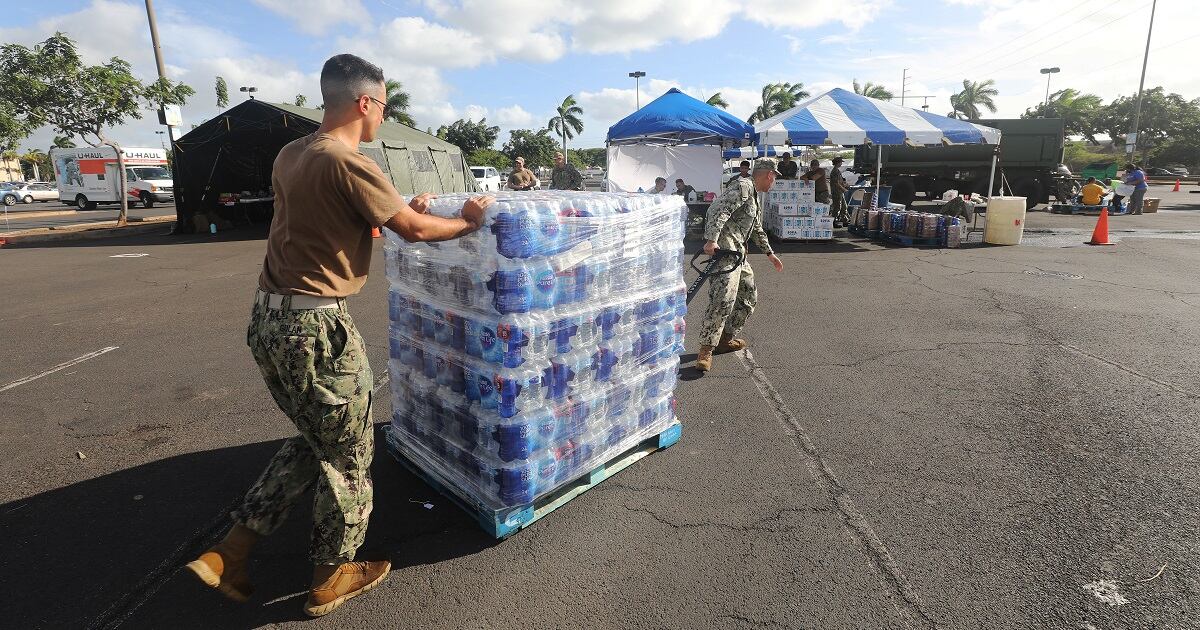
“In my heart I feel, especially the Army, has provided everything they can to us to make the situation as easy as it can be.” Johnson said. “At least we have access to water.
“But I don’t think there’s anything they can offer us that can help alleviate the complete mental load that we’re all bearing right now. A lot of people are still dealing with health issues and seeking medical care.
“It feels like we’re all in a state of shock right now.”
Families are fearful about possible long-term health issues. Contreras said the symptoms that she, her husband and twin babies were having before the fuel odor began have mostly subsided since they’ve stopped using the tainted water.
“I’m okay now, but I was having some pretty odd symptoms,” she said. “I felt like I was losing my mind almost. I felt my brain wasn’t working properly. I almost couldn’t do things for myself. I couldn’t think. I thought it was related to post-partum or something, but after being in the hotel for almost a week, I realize that isn’t what it was.
“I’m not having headaches, not having memory loss or extreme brain fog now. My stomach issues are pretty much gone.”
Her husband had also been experiencing headaches, but it’s a mild headache now, she said, and “the rest of his symptoms for the most part, I believe, are gone.”
As far as the babies, one twin had a cough, and that’s stopped now, Contreras said. The other twin had a rash, which has gone away. They had some trouble breathing, and that has also been resolved.
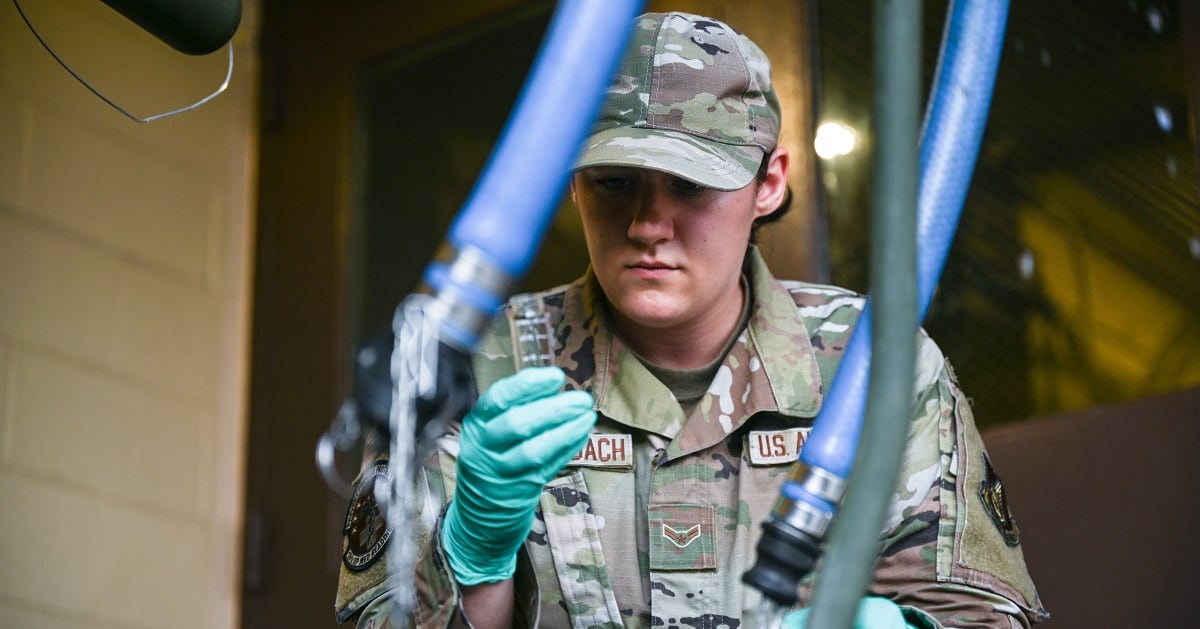
She’s worried that her dog has developed lesions, and their schedules are making it difficult for them to get her to a veterinarian. The military is providing those services.
RELATED
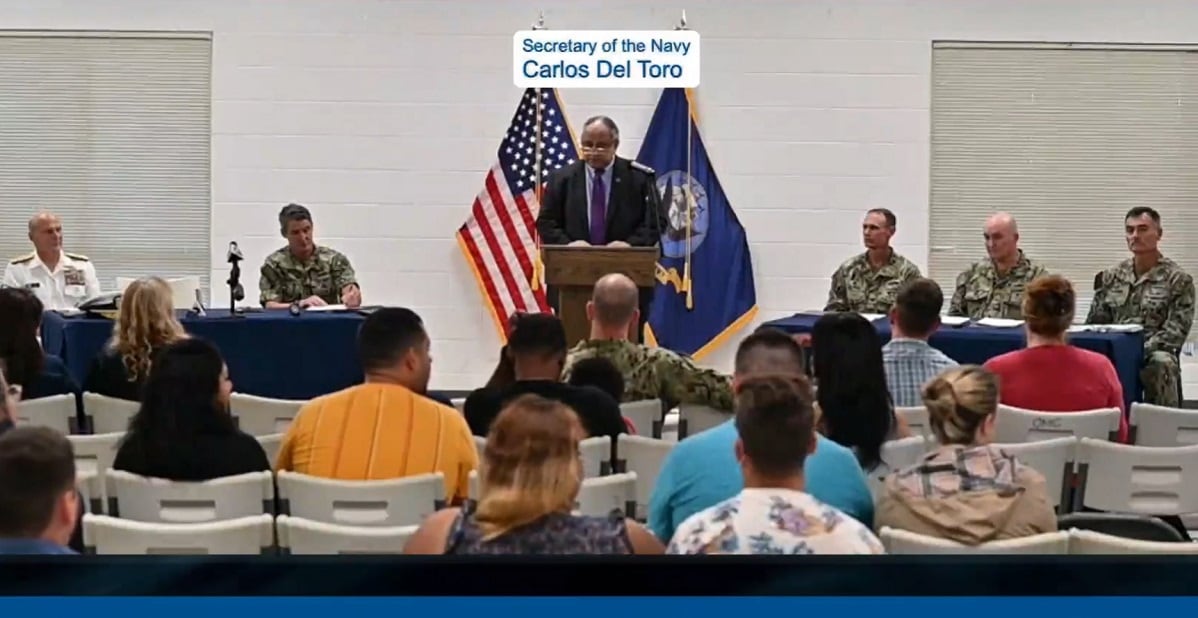
Expenses are piling up
Things are changing every day for families.
U.S. Army Garrison Hawaii officials posted on their Facebook page late Dec. 7 that people in areas with the tainted water shouldn’t use items that were previously used with the water, such as toothbrushes, coffee makers, ice makers and other items.
For Contreras, that’s going to be expensive. She’s discarded her babies’ 20 baby bottles, 10 pacifiers, and has started replacing them. She’ll also have to discard two $100 bottle sanitizers, and expects to spend more than $100 replacing some components of her breast pump.
The Armed Forces Housing Advocates organization has advised residents that, out of an abundance of caution, they should discard plastic items such as bowls, plates and cups that have come in contact with the fuel-tainted water, as they could later leach some of the petroleum into food or drinks.
Contreras will replace many of her kitchen items, she said. “We’ll have to pay out of pocket for these and hope the military will reimburse us,” said Contreras, whose husband is enlisted.
“We’re a dual-income household, and I make good money,” she said. “That’s the only reason we’re able to stay afloat right now. If we didn’t have that income, we would be in a serious financial bind. There are families that are currently struggling to pay bills because of the situation.”
While the military relief societies are offering financial assistance, Contreras said she’s not sure that’s going to be enough to meet the current needs.
The fact that it’s so close to the holidays makes it harder, too, especially with the uncertainty about when the water situation will be resolved. Families are wondering if they need to plan for the holidays in the hotel.
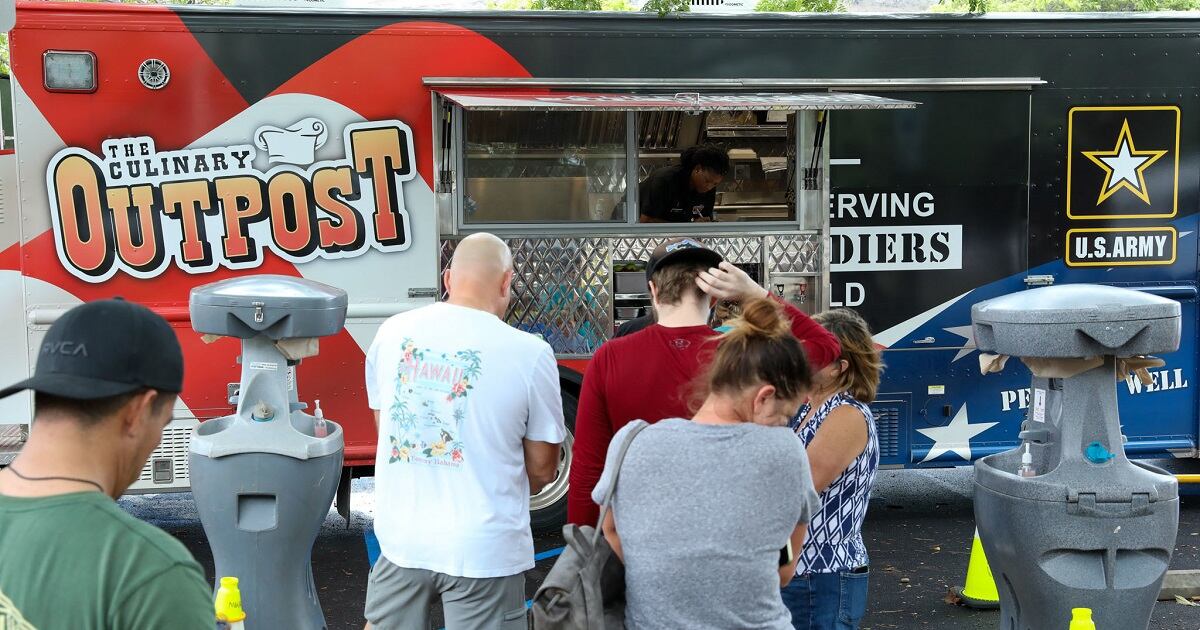
Contreras said they’re flying home for the holidays. “We’d already purchased tickets which are nonrefundable,” she said. Money is now tighter because of these water-related expenses, and they’re having to cut back on Christmas presents they’re buying for their baby boys. They won’t be able to buy for others, she said.
From hotel to house, and back
Many families have chosen to move their families to hotels, at the government’s expense, although some have chosen to stay behind for various logistics reasons. They appreciate the ability to stay in a hotel with clean water and warm showers, but many are making frequent trips back and forth from hotel to housing. Contreras said they’ve had to leave their dog in their home because their hotel doesn’t allow dogs, so her husband is going back to the house to take care of her. They can’t afford to board her in a kennel.
Johnson, her husband and three young children have also been staying in a government-contracted hotel, going back and forth between the hotel and their house at AMR. But their children all have fevers this week, so they’ve been back in their house to prevent spreading germs to other families at the hotel. “It’s one of those things, as a responsible member of society. … The last thing I want to do is to give this to another family” going through this right now, she said.
The children have tested negative for COVID using the home tests, but they’ll have to stay home from school until they’ve been cleared for COVID by a doctor.
Johnson immediately stopped using the water when a friend alerted her on Nov. 28. In those early days, she developed a new appreciation for water needs beyond drinking, cooking, bathing and washing dishes: their Hawaiian Christmas tree was wilting; she needed safe water to wash her floors daily; and her hobbies include gardening and raising caterpillars. “I’m trying not to poison the caterpillars or my fruit,” she said.
She bought large bins at Target, and uses a big stick to stir, wash and rinse her laundry in her driveway. She was using the laundry service at the hotel, but while they’re at home, she’s using those bins for items that are “high turnover, like masks, and stuff that my kids have gotten so dirty that I don’t want it to sit.”
“We did have a friend come and pick up some of our bedding yesterday, so she’s going to wash that for us,” she said. “We’re talking about using the laundry service through the Army today just because we’re getting a little behind here, and want to be able to handle it.”
Before the hotel rooms, or the shower facilities for community residents, were provided, Johnson packed up soap, shampoo, towels, clean clothes and other necessities and drove her children the 25 minutes to a friend’s house at the Marine Corps base for showers.
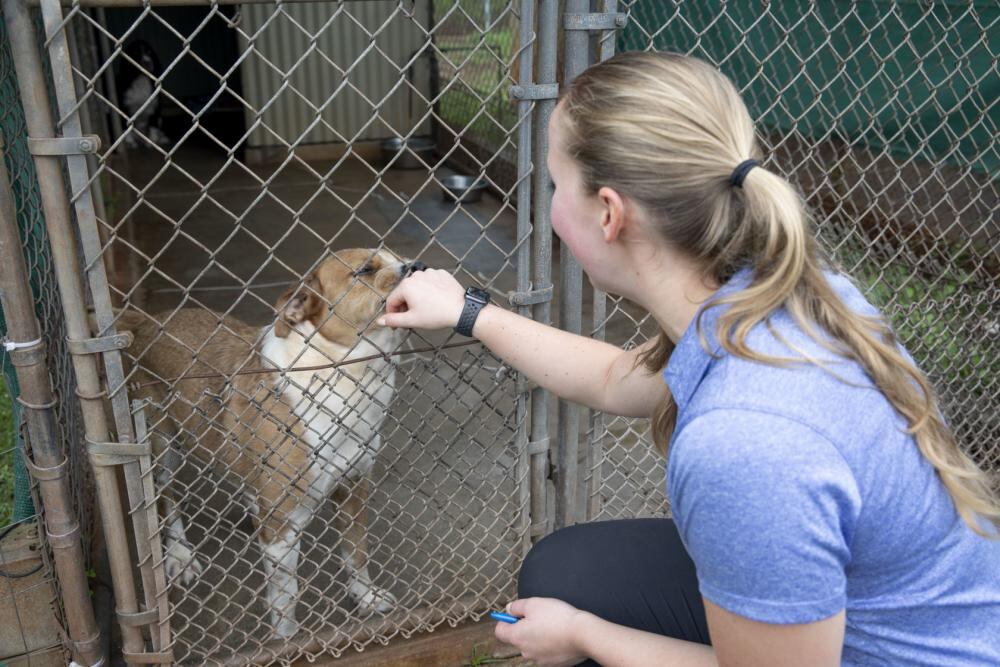
Staying in the hotel has helped with the showering, but back at their house this week because of their children’s illnesses, the Johnsons were having to come up with alternatives.
For bathing the children, she said, “we’ll probably warm some water on the stove. They can’t return to school until they’re for sure cleared by a doctor for COVID anyway, so we’ll just kind of make do until we know we’re healthy. They do have a shower here at the community center, but for the same reasons, I don’t think any of us will be using those today,” to avoid spreading disease.
People she knows have commented about how grateful they are for those facilities, Johnson said.
“I’ll never take another warm shower for granted again.”

Karen has covered military families, quality of life and consumer issues for Military Times for more than 30 years, and is co-author of a chapter on media coverage of military families in the book "A Battle Plan for Supporting Military Families." She previously worked for newspapers in Guam, Norfolk, Jacksonville, Fla., and Athens, Ga.





